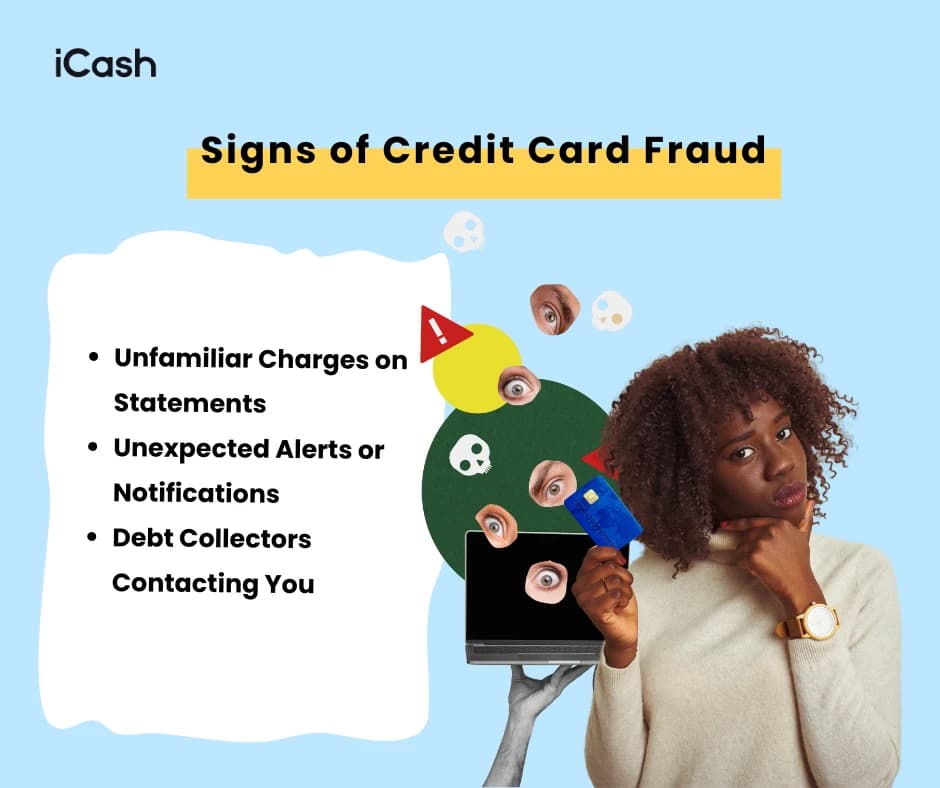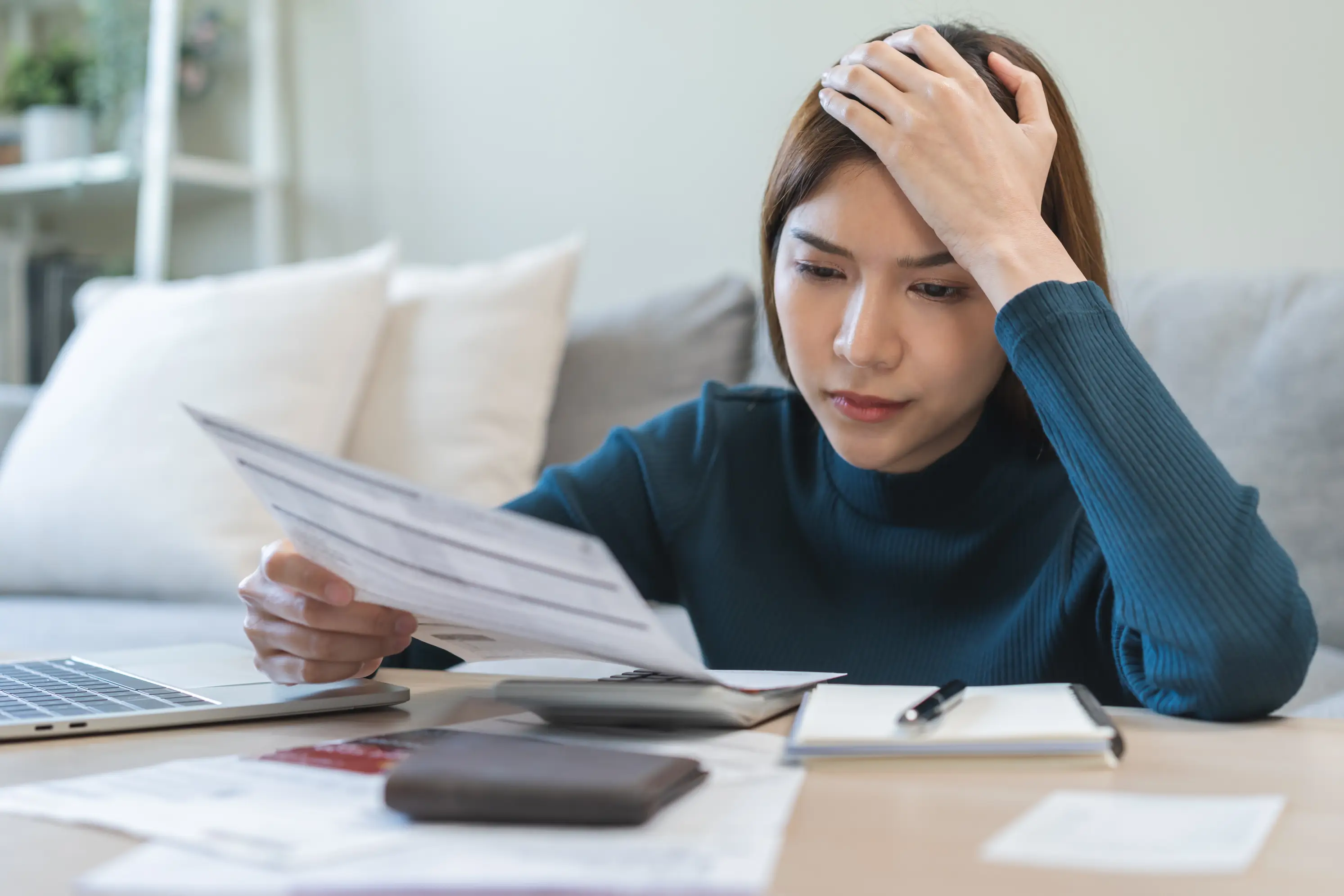Did you know that credit card fraud is one of the most widespread crimes in the country? In fact, there were nearly 500,000 reported cases in 2024 alone, according to data collected by credit bureau Experian. That number is certainly alarming.
But what exactly is credit card fraud? Credit card fraud happens when someone uses your credit card or its information without your permission. It’s definitely become more common as online shopping grows and personal data is shared online more frequently. When fraud occurs, it can lead to unauthorized charges, lost funds, and even identity theft. Understanding how credit card fraud works is the first step to protecting yourself and your finances.
It’s important to regularly check your credit accounts. This way, you can take immediate action if someone tries to make purchases or withdrawals using your card. Acting fast means you can report the fraud to your bank or card issuer, helping them to freeze the account and stop any further losses.
Knowing what signs to look out for, such as unexpected charges or alerts about new accounts, can also help. Most banks now offer security features like transaction alerts and fraud protection services to notify you when something seems wrong.
What Is Credit Card Fraud?
Credit card fraud is when someone uses your credit card account or its information without permission. They might make purchases, withdraw cash, or even open new accounts using your details.
They don’t need to have your physical card to commit fraud. Sometimes, just knowing your card number and other information is enough. This can happen through online shopping, phone scams, or by stealing your card details at payment terminals.
Credit card account fraud is a common issue because unfortunately, there are many ways for criminals to get hold of personal information. They might hack websites, use devices to skim card data at ATMs, or trick people into giving out details over the phone or email. Because so many people now use cards for purchases, both online and offline, it’s easier than ever for fraud to happen.
Common Types of Credit Card Fraud

Credit card fraud can happen in many ways, and each uses different tricks to steal information or money. Knowing these types can help you spot fraud early and take action as quickly as possible.
Card-Not-Present (CNP) Fraud
CNP fraud happens when someone uses your credit card information online or over the phone without needing the physical card. This type of fraud is common with online shopping.
For example, if a scammer gets hold of your credit card number, expiration date, and security code, they can use it to make purchases without needing your actual card. This is why it’s so important to keep your card details private and secure.
Credit Card Skimming
Skimming is when criminals steal your credit card details by using a skimming device at ATMs, gas stations, or payment terminals. These devices are often hidden and can scan your card's information when you swipe it. Skimmers might even have cameras set up to capture your PIN.
Once they have your card details, they can use them to make purchases or withdraw cash. Be careful of suspicious-looking credit card readers and cover your PIN when entering it.
Lost or Stolen Card Fraud
When a physical credit card is lost or stolen, it can quickly be used without your permission. If someone finds or steals your credit card, they might use it to make purchases or withdrawals before you even realize it’s missing.
That’s why it’s so important to report your credit card as lost or stolen to your bank as soon as possible. Most banks will freeze the card immediately to prevent any further misuse and may be able to reimburse your lost funds too.
Card Application or Account Fraud
This type of fraud occurs when someone uses your personal information to open credit accounts in your name. They might use stolen data, like your social security number or birthdate, to apply for a card. If they’re able to get approved, they can rack up charges that you’re unaware of until you start receiving bills or see your credit score drop.
How Credit Card Fraud Happens
Credit card fraud can happen in different ways, and fraudsters are always finding new tricks to steal information. Phishing, data breaches, and hacking payment systems are some of the methods they use.
Phishing is when scammers pretend to be someone you trust, like your bank, and send fake emails or text messages asking for your credit card details. They might say there’s a “problem with your account” and ask you to click a link to "fix it."
Another way fraud happens is through data breaches. When a company’s database is hacked, millions of people’s credit card details can be stolen at once, like what happened with Ticketmaster in 2024.
Hackers also target payment systems directly. They may break into online stores or use malware to steal card information during transactions. This is why it’s safer to use secure websites with “https” in the URL and avoid public Wi-Fi for online shopping.
Signs of Credit Card Fraud

Here are some credit card fraud warning signs to watch for:
Unfamiliar Charges on Statements
One of the most obvious signs of fraud is seeing charges you don’t recognize on your credit card statement. It could be a small amount that seems “normal” or a big, unexpected purchase. Fraudsters sometimes start with small fraudulent purchases to see if you notice. If you spot something you didn’t buy, you must report it to your card issuer immediately. The sooner you act, the easier it is to prevent further damage.
Unexpected Alerts or Notifications
If you get alerts for password changes, declined charges, or a new account opened in your name, it could be a sign of credit fraud and you should pay extra special attention to it. These notifications could mean someone might be trying to access your accounts or make purchases using your information. Take these fraud alerts seriously, even if they seem minor, and check with your bank or card provider to confirm if they’re legitimate.
Debt Collectors Contacting You
If debt collectors start contacting you about charges or accounts you don’t know about, it’s a huge red flag. This could mean that someone has used your identity to open a credit account and hasn’t paid the bills. Ignoring these calls could harm your credit score. Instead, reach out to the debt collector and your bank to investigate and clear up any fraudulent charges.
Steps to Take If You Are a Victim of Credit Card Fraud

If you find yourself a victim of credit card fraud, it’s important to act fast. Here are a few steps to help you take control:
Confirm That Charges Are Fraudulent
Before taking action, make sure the charges are actually fraudulent. Look over your recent purchases and check with family members who may share and/or your card. Once you’re certain the charges aren’t yours, you’re ready for the next steps.
Contact Your Card Issuer Immediately
Without hesitation, your card issuer must be your first call. Explain the fraudulent charges, and they’ll freeze your account to stop further suspicious transactions. Acting quickly is important to prevent more money from being spent without your permission. Your card issuer can also help you get those unauthorized charges removed.
Set Up a Fraud Alert with a Credit Bureau
A fraud alert notifies lenders to verify your identity before opening any new accounts in your name, which can stop identity thieves in their tracks. Contact one of the major credit bureaus (Experian, Equifax, or TransUnion) to set up an alert. It’s free and adds a layer of protection to your credit.
Consider Filing a Police Report
If the fraud involves a large amount of money or identity theft, it might be worth filing a report with your local police. An official report is useful for proving fraud to banks or creditors, and it helps law enforcement track down the fraudsters to make sure this doesn’t happen to anyone else.
How to Prevent Credit Card Fraud
Preventing credit card fraud starts with some simple habits. Here are some steps you can:
Monitor Your Credit Card Statements and Accounts Regularly
One of the best ways to prevent fraud is by simply checking your statements often. Look through your transactions to spot anything unusual. The faster you catch a strange charge, the quicker you can deal with it and report it.
Set Up Transaction Alerts
Most banks let you set up alerts for your credit card. These alerts can notify you immediately if there’s a charge on your card. You can likely customize the alert to receive notifications for every transaction, or ones that only pass a certain dollar amount. If you get an alert about a purchase you didn’t make, you can act right away to secure your account.
Secure Your Information
Keeping your card information private is crucial. Use strong passwords for your accounts and avoid easy-to-guess codes like “1234” or “password.” That should seem obvious but, believe it or not, those are still some of the most commonly used passwords in the world.
Also, try not to shop or check your bank accounts on public Wi-Fi, as these networks are easier for hackers to access.
What to Do if Your Card Is Lost or Stolen
The first step is to call your card issuer and let them know your card is missing. They can freeze or cancel your card so no one else can use it. You may even be able to freeze it by logging in to your account through the bank’s smartphone app. Either way, don’t wait!
Then you should check your recent transactions. Look for any charges you didn’t make. If there are unauthorized purchases, let your card issuer know about them right away. They’ll investigate and usually reverse any fraudulent charges.
Credit Card Fraud in a Nutshell
Credit card fraud is a serious issue, but it doesn’t have to be a terrifying issue. You can protect yourself by staying alert to warning signs, like unfamiliar charges or unexpected alerts, which is key to spotting fraud early. Using tools at your disposal like transaction alerts gives you an extra layer of security and peace of mind.
If fraud does happen, acting immediately is the best thing to do. Report unauthorized charges to your card issuer immediately and consider setting up a fraud alert with a credit bureau to have your credit report monitored.
Also remember, that you’re not alone in dealing with fraud. iCash is always here to help you navigate through these situations if you need some advice, or even if you need some extra funds to help you get through a financial emergency!












